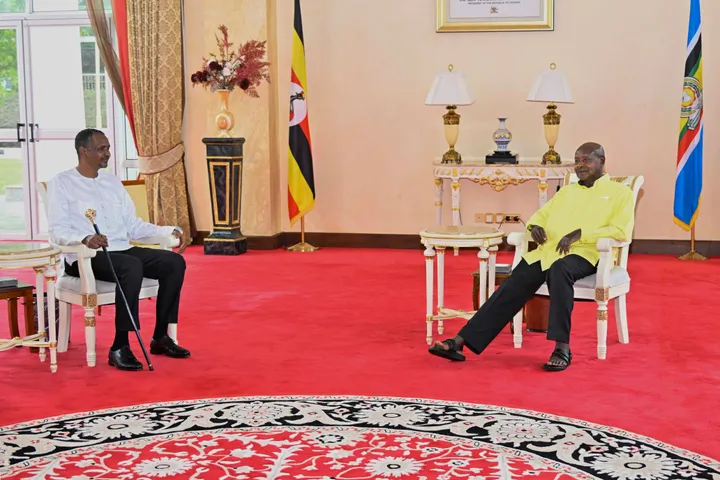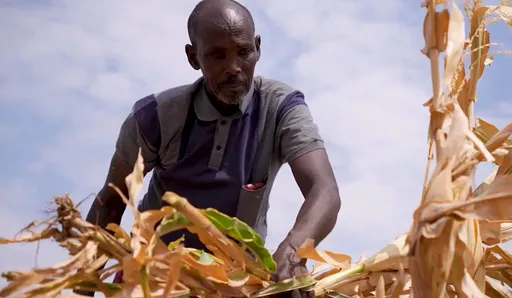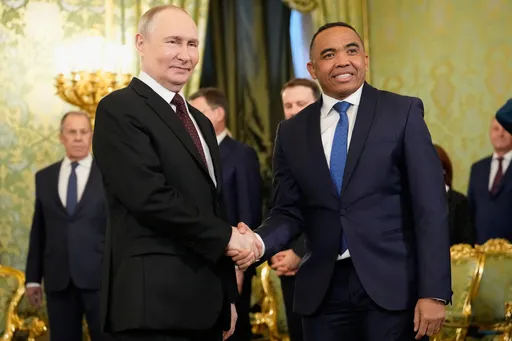By Ovigwe Eguegu
To anyone observing, the global order of governance and international relations is changing.
In the western hemisphere, South American governments are moving away from US-inspired leadership. In Asia, there is China's rise to global prominence and, on a wider scale, the shift away from Euro-Atlantic leadership to a multipolar world order with self-determination and sovereignty as focal points.
In this instance, however, the aim is to understand the centrality of Africa to global developments, especially how African governments are adapting to these changes and what must be done to be in advantageous positions moving forward.
Analysts and policy makers believe there is a new scramble for Africa, and in this race, the focus of world powers is to secure supply access to critical minerals needed for the development and manufacture of technology that powers the so-called fourth industrial revolution.
The US, for instance, has in several of its policy documents highlighted the importance of securing access to "strategic minerals" that are in abundance in Africa such as cobalt, lithium, and aluminium.
Ditto China, which has deep economic ties with various African countries that open access to its high-powered and energy-hungry economy. These are economic rivals, but the question is: What do African governments have to say?
Zimbabwe has moved to develop its own strategic minerals locally, such as iron and platinum. Nigeria has classified lithium as a strategic mineral, and Guinea has re-strategised its position on how to utilise its resources while preserving national interests.
Amid talk of the "new scramble" for Africa, the reality is that foreign governments do not have the freedom for wanton exploitation, unlike under the Berlin Conference and at the height of the Cold War.
The current geopolitical layout is such that Africans have low tolerance for environmental destruction, displacement and other unpleasant realities that played out through the 19th and 20th centuries in the name of industrialisation.
Scrambling for fish, energy
Many African countries are now putting themselves first, even with the understanding that trade and economics are now global.
Contemporary geopolitics suggests that African governments are now in a position to determine conditions of international relations, which practically means that long established modes of trade and diplomacy between Mali and France, for example, have been upturned.
Washington is now ramping up diplomatic effort to shore up support in the continent, with Secretary of State Antony Blinken making visits to several African countries and talking up the need for US-led development of natural resources and strategic minerals in African territories.
Vice President Kamala Harris has also visited Ghana, Tanzani and Zambia recently meeting political leaders and young people where she said the trip was ''in recognition that African nations are critical to global prosperity and security — and their ideas and innovations will benefit the world.''
China is another factor to consider in this regard, for Beijing has been the largest trading partner of African countries in recent years and this makes them favoured options to African leaders seeking new economic relations.
Additionally, African governments like Burundi, Ethiopia and Niger now benefit from a 98% drop on export tariffs to China as part of broader efforts by Beijing to increase imports from Africa.
Tanzania and Uganda also started benefiting from duty-free exports of some products to China. With a policy covering over 8,800 items, China is seeking to boost African imports to $300 billion by 2025.
The point to note is that while powerful nations like the US and China seek deeper influence among African governments, countries on the continent have a newfound flexibility in partnership choices, especially when considering the economic benefits available in Africa-China relations.
From debt-relief plans to duty-free exports, African governments are in a position to influence the great power rivalry and the potential to shift global attitudes around the subject of unipolarity, multipolarity or non-alignment.
The maritime front is another realm where Africa demonstrates the potential to influence the global order.
Considering key shipping lanes like the Suez Canal near Egypt and the Bad-el Mandeb Strait by the Horn of Africa that service Europe and Asia with oil and natural gas, African countries have moved to improve capacity to face the collective threats of piracy while exercising the autonomy to address external interests.
Furthermore, the natural resources around areas like the Gulf of Guinea and the Horn of Africa also have many countries scrambling for fish, and energy sources like natural gas.
In this context, enhanced continental coordination can allow Africa's maritime resource to bring sustainable benefits across the continent.
Possibilities for Africa
The Yaounde Code of Conduct (YCoC), for instance, was signed by 25 states in 2013 for increased cooperation in information sharing, interdiction and investigation – all to confront maritime security threats like piracy, smuggling, illegal fishing and pollution.
This sort of cooperation, while being lauded, has not had the desired result because, according to Chatham House reporting, 130 of the 135 maritime kidnappings recorded worldwide happened in the Gulf of Guinea.
But the results of the YCoC have been put to the non-binding nature of the agreement as well as gaps in finance and capacity.
More importantly, as African governments have begun implementing blue economy development strategies, they may come in competition with other powers whereby geopolitical dynamics can influence maritime international relations.
In conclusion, the current geopolitical developments, as mentioned through this piece, suggest that the world is moving away from a US-led unipolar global order towards a multipolar configuration where countries of Asia, South America and Africa gain more influence in global matters.
This has brought forth new possibilities for Africa as various governments within the continent play new roles in global politics such as influencing power dynamics around access to strategic minerals and other such resources.
This influence on the global order is also reflected in international community activities like UNGA votes and the potential growth of blocs like BRICS, the EAC, besides geopolitical decisions of the Non-Aligned Movement.
Seeking greater representation in the G20 and the United Nations Security Council, also means Africa is moving from a position of a mere observer to a serious actor on the international stage.























